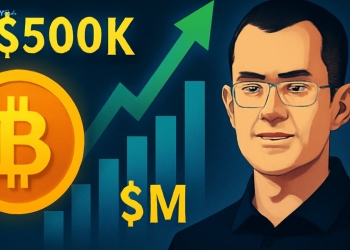Solana NFT Giant Draws Scrutiny for Handling of User Funds Without Consent
The decentralized NFT infrastructure platform Metaplex is facing mounting legal pressure over its controversial plan to sweep over 54,000 unclaimed SOL—worth approximately $7.3 million—into its DAO treasury.
The decision has ignited backlash from legal experts, community members, and Solana users, raising serious questions about transparency, user rights, and DAO accountability in the Web3 era.
The funds in question stem from rent-exempt balances returned during a technical upgrade that optimized NFT metadata accounts. This system change unlocked small amounts of SOL previously locked as rent fees, which now remain unclaimed SOL across thousands of Solana wallets.
Legal Threat Emerges from Burwick Law
The flashpoint came when Burwick Law, a New York-based legal firm specializing in Web3 litigation, issued a formal warning to Metaplex. In a public statement, the firm argued that sweeping the unclaimed SOL into the DAO’s treasury without direct refunds or explicit user consent could constitute grounds for litigation and a violation of consumer protection principles.

“There’s a right way to manage user funds—and this isn’t it,” the firm posted on X. “We’re urging Metaplex to avoid triggering legal consequences by doing the right thing: issue automatic refunds or postpone the sweep.”
The law firm recommended that Metaplex halt the sweep and instead deploy a smart contract upgrade to redistribute the unclaimed SOL directly to rightful NFT holders. They also proposed that the DAO retain up to 10% of the recovered funds to cover maintenance costs, providing a middle ground that preserves both user trust and ecosystem funding.
Countdown to Deadline
Users were given a window until April 25, 2025, to manually reclaim their SOL balances. Post-deadline, Metaplex intends to repossess any unclaimed SOL funds and reallocate them to its treasury, as stated in its upgrade documentation.
Critics argue that the communication around this process was poorly handled, with many users unaware that their SOL was eligible for claim or at risk of being swept. While the technical documentation was publicly available, the lack of direct outreach or platform-wide notices has exacerbated concerns.
This isn’t just a question of lost funds—it’s a test of user protection standards in decentralized governance.
DAO Accountability in Question
This controversy marks a broader turning point in DAO operations. While decentralized governance often promises transparency and community ownership, this case shows that a lack of proactive communication and opt-in consent mechanisms can undermine user confidence.

“This goes beyond Metaplex,” noted crypto analyst Josh Daniels. “It’s about how DAOs handle power. When they start behaving like black boxes instead of community-first collectives, the entire premise of decentralization comes under fire.”
For Solana, a network still bouncing back from past outages and community skepticism, the Metaplex incident risks becoming a reputational setback, especially if legal action proceeds.
Will Metaplex Respond?
As of now, Metaplex has not publicly addressed Burwick Law’s warning or issued any revisions to the planned SOL sweep. Whether the platform will reconsider its stance remains unclear, but pressure is mounting from both legal and community fronts.
Meanwhile, users are being urged to check their wallets and claim any available SOL before the deadline to avoid permanent loss of funds.
Conclusion: DAO Governance Faces a Crossroads
The Metaplex unclaimed SOL saga is not merely a dispute over $7.3 million—it’s a cautionary tale for DAOs across the blockchain space. As decentralized platforms grow in scale and value, so too does their obligation to uphold transparency, user rights, and ethical fund management.
With a legal clock ticking and trust on the line, Metaplex now faces a crucial decision: maintain its current course or adapt to a more user-focused, compliant framework.
FAQs
What is the Metaplex controversy about?
Metaplex plans to sweep 54,000 unclaimed SOL tokens into its treasury, sparking legal threats over transparency and user consent.
Who is challenging Metaplex’s decision?
New York-based Burwick Law has warned Metaplex of potential legal consequences unless it halts the sweep and refunds users.
When is the deadline to claim unclaimed SOL?
Users must reclaim their funds by April 25, 2025, or risk losing them to the DAO treasury.
What could happen if Metaplex doesn’t change course?
Metaplex may face lawsuits, reputational damage, and community backlash that could hurt both its platform and the broader Solana ecosystem.
Glossary
Metaplex: A protocol on Solana that powers the NFT minting and metadata ecosystem.
DAO (Decentralized Autonomous Organization): A community-led entity with no central leadership, governed by smart contracts and collective voting.
SOL: The native token of the Solana blockchain.
Rent-Exempt Balance: A small SOL deposit used to keep on-chain accounts active, refundable after account size changes.
Sweep: In blockchain, a process where unclaimed or inactive funds are transferred to a designated address or treasury.































































































![BitTorrent [New]](https://s2.coinmarketcap.com/static/img/coins/64x64/16086.png)













